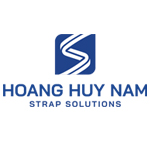The development of personalization technology and AI-based skin analysis is creating a new trend in the Skin Care market. AI and Machine Learning are being integrated into applications and online platforms to analyze users’ skin conditions, recommending suitable skincare products accordingly. This offers a highly personalized experience, allowing customers to easily find the right products for their skin types and specific concerns. Major brands such as L’Oréal and Estée Lauder have adopted this technology to provide online consultation services, ensuring a convenient shopping experience and higher skincare efficacy (Research and Markets)(StrategyHelix).
Encapsulation technology is a breakthrough in the development of skincare products. This technology protects and gradually releases key active ingredients such as retinol, vitamin C, and peptides. It not only ensures that the nutrients penetrate deeper into the skin but also minimizes irritation, particularly in anti-aging and whitening products. The stability of active ingredients is improved, optimizing their efficacy in evening out skin tone and enhancing skin firmness (Fortune Business Insights).
Fermentation technology is also creating a major trend in the Skin Care market. The fermentation process helps natural ingredients like green tea, yeast, and rice extract become more bioavailable, allowing them to penetrate the skin more easily. Leading K-Beauty and J-Beauty brands such as Amorepacific and Shiseido have successfully utilized this technology to enhance the quality of their products. Fermentation not only boosts the efficacy of skincare products but also differentiates the quality, providing a more intensive skincare experience for consumers (MarketResearch).
Anti-pollution and environmental protection technology is becoming increasingly important, especially in urban areas with high levels of air pollution. These products protect the skin from the negative effects of smog, UV rays, and microplastics in the air. Combined with sunscreens, this technology is becoming a popular trend in Skin Care products for consumers living in major cities (Fortune Business Insights). Developing products with integrated anti-pollution technology presents significant opportunities for businesses, particularly in the context of rapid urbanization and rising environmental pollution.
Eco-friendly packaging is another key factor in the sustainable development strategies of Skin Care brands. Companies are increasingly shifting toward using recycled, biodegradable, or reusable packaging to minimize environmental impact. This not only meets the demands of environmentally conscious consumers but also creates a competitive advantage for brands. L’Oréal and Unilever are leading examples of companies adopting eco-friendly packaging, with commitments to reduce plastic waste and increase the use of recycled packaging in their product lines (Research and Markets).
Overall, technological innovations in the Skin Care industry not only enhance customer experience but also improve product efficacy. Integrating AI, encapsulation technology, and eco-friendly packaging will help businesses create competitive advantages and achieve sustainable growth in the future.


